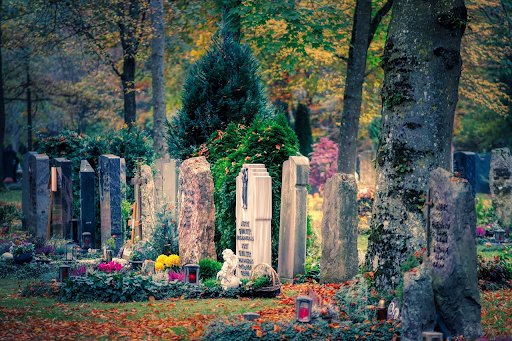5 minute read
Funerals are a profound tradition that serves as a critical part of the grieving process, offering a unique opportunity for individuals to come together in remembrance and support. They provide a structured environment where family and friends can honor the life of a loved one, share memories, and collectively experience their feelings of loss. This communal aspect of funerals is essential for healing, as it not only validates the emotions individuals are experiencing but also fosters connections that can facilitate the grieving journey. In this blog, we will explore the significance of funerals, examining how they play a vital role in helping us navigate our grief and find solace in the memories we cherish.

The Role of Ritual in Grief
Rituals play a crucial role in the grieving process, providing structure and meaning during a time of emotional turmoil. They serve as a tangible expression of grief, allowing individuals to honor their loved one’s memory while creating a safe space for emotional release. Rituals can take many forms, from traditional religious ceremonies to personal acts of remembrance, such as lighting a candle or sharing stories. Going to counseling as a way to provide grief support is also a common ritual that can help individuals process their emotions and find comfort in the presence of others who understand their pain. This shared experience of ritual can offer a sense of community and connection, helping individuals feel less alone in their grief. Just as funerals provide a structure for mourning, they also offer an opportunity for individuals to find meaning and purpose in their loss.
Creating a Space for Remembrance
Establishing a dedicated space for remembrance can be a powerful tool in the grieving process, allowing individuals to reflect on their loved one’s life and legacy. This space can take various forms, such as a small altar at home adorned with photographs, mementos, and personal effects that evoke cherished memories. It can also include a garden area where flowers are planted in their honor, providing a serene environment for contemplation. By creating such a space, individuals not only pay tribute to their loved ones but also foster an ongoing connection, engaging in rituals such as lighting a candle or writing letters expressing their thoughts and feelings. This physical manifestation of remembrance can serve as a comforting reminder of the love shared, helping to ease the pain of loss and promote healing over time.
Building Community Support
Building a supportive community is vital in navigating the complexities of grief. Engaging with friends, family, and local support groups provides a network where individuals can share their experiences and emotions without judgment. Community support encourages open dialogue and fosters an environment where grief is acknowledged, allowing individuals to feel understood and validated.
This social interaction can take many forms, from casual conversations to organized support groups, where members share their stories and coping strategies. Additionally, participating in community events commemorating the deceased can not only honor their memory but also reinforce bonds among those who are grieving. By cultivating these connections, individuals can find comfort in shared experiences, reducing feelings of isolation and promoting a sense of belonging during one of the most challenging times in their lives.
Finding Closure
Finding closure after the loss of a loved one is an essential aspect of the healing journey, allowing individuals to arrive at a place of acceptance and peace. This process often involves emotional exploration and reflection on the relationship shared with the deceased. One way to seek closure is through personal rituals, such as writing letters to the departed or engaging in conversations with them in a supportive setting. These acts can provide a symbolic release and facilitate a deeper understanding of one’s feelings. Additionally, seeking professional counseling or attending support groups can create safe spaces for expressing emotions and discussing unresolved feelings. Ultimately, finding closure is a personal journey that varies for each individual, but it is pivotal in moving forward while cherishing the memories of those we have lost.
The Impact of Shared Stories
Sharing stories about a loved one who has passed away can be a healing practice that significantly influences the grieving process. These narratives serve not only as a means of honoring the deceased but also as a catalyst for connection among those who are mourning. When individuals recount memories, whether joyful or bittersweet, they create a shared space where emotions can be expressed freely, fostering an atmosphere of understanding and solidarity.
This exchange of stories can also help to keep the loved one’s memory alive, allowing their legacy to be celebrated and remembered. Hearing others’ experiences can provide new perspectives on the relationship, offering insights that might not have been previously considered and promoting a sense of continuity amidst the loss. Ultimately, shared stories cultivate a supportive environment where healing can take place, reassuring individuals that they are not alone in their grief.




